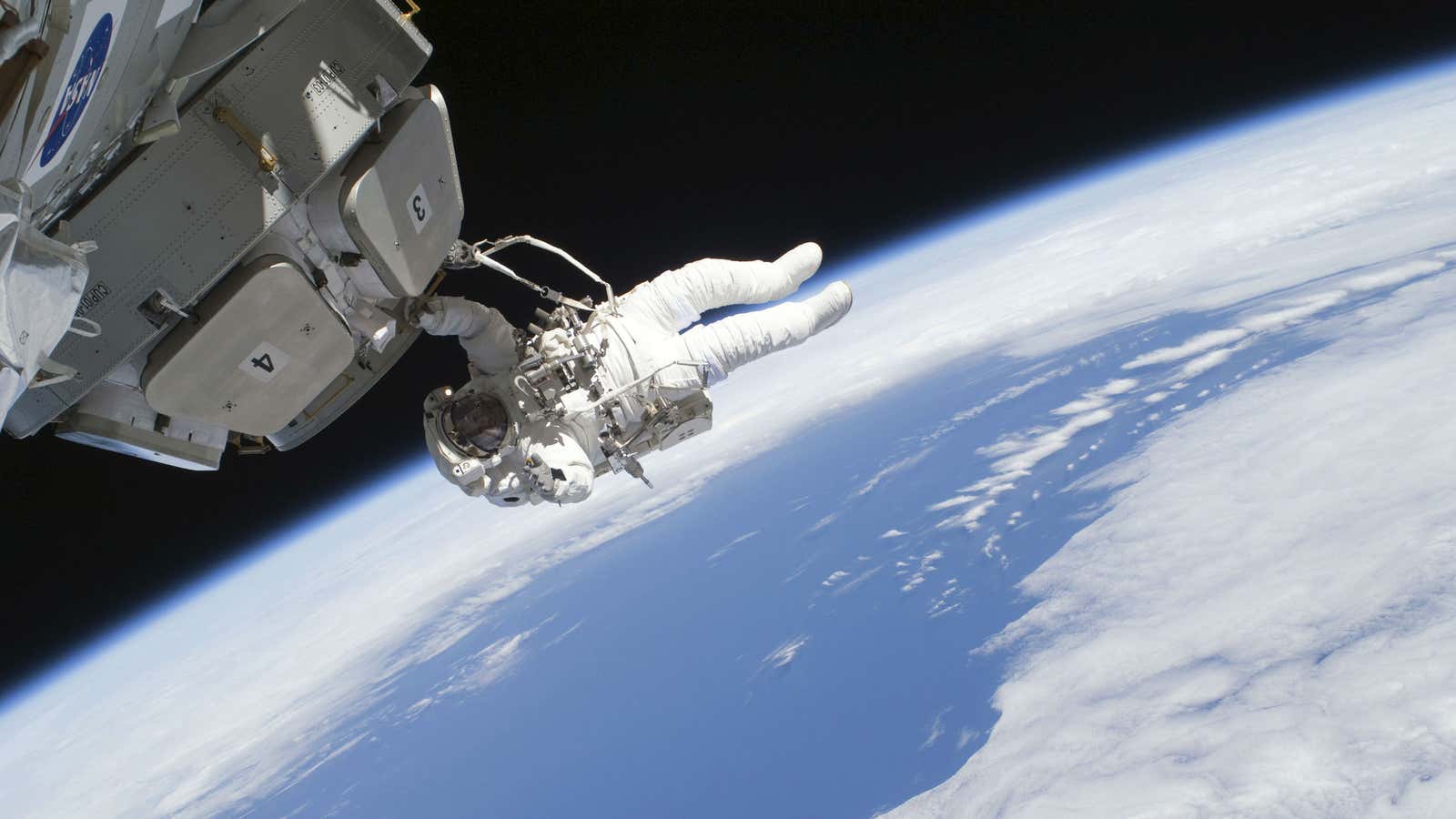Space travel presents scientists with seemingly infinite challenges. Aside from the technological feat of getting astronauts off the planet, scientists have to figure out how to keep them healthy with no-gravity exercise, clean air, and nutrition once they’re up in space.
But there’s one much-less-glamorous problem space scientists have to solve: How to get rid of astronaut poop on long missions in spacesuits.
The question has NASA scientists stumped, and so they’re taking suggestions from the public. In October of this year, they launched the “Space Poop Challenge” on the crowdsourcing platform HeroX. Anyone can submit a proposal through Dec. 20, and the winner will get $30,000.
Since the 1970s, NASA missions have stayed relatively close to Earth—just about 250 miles above the surface of the planet. (For reference, the moon is 238,900 miles away.) In an emergency, astronauts can make it back home in a few hours. If they run into trouble on missions farther away from Earth—as they will if space programs have them exploring the moon or even Mars—they may be SOL. They could have to rely on their spacesuits for up to six days to keep them alive while they try to make it home (or fix the ship). During that time, they’re going to go to the bathroom.
NASA is looking for suggestions on how to create a device that will fit compactly in spacesuits while safely collecting and storing a liter of urine, 75 milliliters of fecal matter, and just over 13 milliliters of menstrual blood per day for six days. Astronauts use diapers for urine when they’ll be in their spacesuits for eight to 12 hours, but these would cause too much irritation and risk infection for prolonged use.
Even on a spaceship, using the bathroom is difficult. On NASA space shuttles, astronauts must learn to use toilets that alarmingly utilize suction power to carry away liquid and solid waste. According to the Washington Post, fecal waste on the International Space Station is launched off the spacecraft and burn up in the earth’s atmosphere in a way that looks “not dissimilar to a shooting star.” (Be careful when pegging your wishes to the streaks of light across the night sky.)
President-elect Donald Trump has said he wants to to “refocus [NASA’s] mission on space exploration” while in office. If this is the case (he has yet to pick someone to run NASA, although there are a few frontrunners for the job) long-term solutions for human waste management in space will need to be a research priority.




